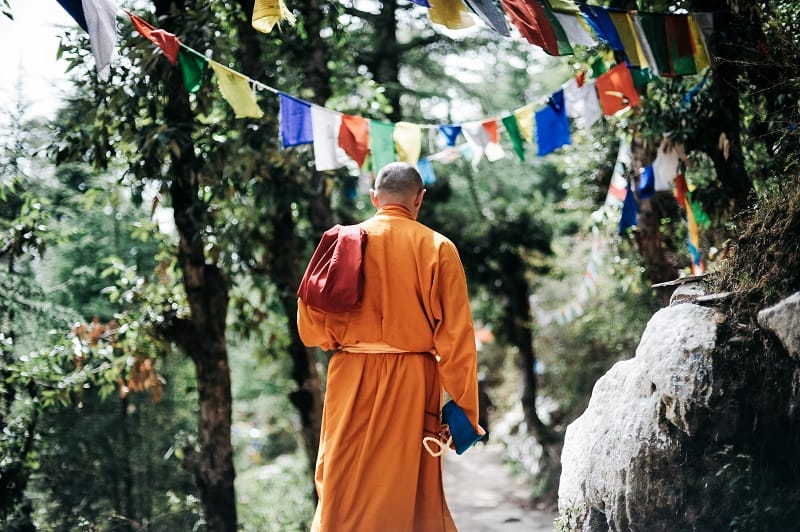The mindfulness, is fashionable and many consider it a new practice that has been born of the current need we have to beat stress and anxiety, but really the origin of mindfulness is in the Buddhist teachings and has about 2,500 years old. I tell you more details about the origin of mindfulness,what it is and the benefits it has on our life and health.
What is the Mindfulness?
Mindfulness means full attention , full conciousness It is a technique based on making an intentional effort to become aware of or pay attention to the present moment with acceptance and without trying to make changes in it. The main objective of this practice is learning to live in the "now" and focus only on the current time spacetaking awareness of what is happening and living that moment without thinking about before or after. In this way, experiences are lived in a much more intense and rewarding way, increasing well-being and happiness.
Origin of the Mindfulness
What we call mindfulness, is the Western adaptation of a teaching that has its origins in Buddhism, and has been practiced for thousands of years. This philosophy of life is based on how we perceive the world and how we perceive ourselves in addition to the practice of meditation, which is a very important pillar but not the only one. The mindfulness practiced by Buddhists promotes being aware and living in the present with acceptance and without judgment (whether positive or negative).

The philosophy of life in Eastern society (with strong influences from Buddhist teachings) is very different from what we have in the West. We are driven by the pursuit of goals; most of our performance focuses on "TO DO"while for the Eastern society its major performance is centered on "BE". On the other hand, we seek happiness "OUTSIDE" while they are still aware of that natural instinct to seek happiness "INSIDE". They focus on the "NOW" and we unfortunately spend our "NOW" thinking about "THE PAST OR THE FUTURE".
We have grown up in a society where happiness is achieved through achievements and material things and our life happens while we are busy working hard to get all those things that will make us happy. When we get those achievements and things we realize that this happiness is temporary and we set new goals to continue searching in new concepts for the happiness we long for. On that long road of efforts and achievements, years go by and in our "PRESENT" we are always busy thinking about what we have achieved in the past and what we have yet to achieve in the future...always in search of that happiness that everyone talks about. And in this way and little by little "LIFE" escapes us.
"Life is what happens while we make other plans" - John Lennon -
The mindfulness, , full attention invites you to look for the pure happiness "INSIDE" of ourselves. If we stop to think about it we have a multitude of moments and small experiences a day that bring us happiness and positive emotions but we live so fast and so busy with pending achievements that we do not stop to observe those moments or experiences and so we lose many opportunities to be a little happier. In many occasions we are not even fully present in those activities or moments that we like or enjoy the most because the stress of everyday life and the overdose of tasks and information with which we live do not let us have a calm mind and fully enjoy the moment.
Benefits of the practice of Mindfulness
- Provides calm and serenity
- Increases our mind control
- Increases the ability to concentrate
- Diminish chronic pain through observation and acceptance.
- Helps to adapt our response to emotional stimuli
- Improves the quality of sleep and rest
- Increases the level of resilience and enhances happiness
- Reduces stress and anxiety levels (cortisol levels are reduced)
- Increases our creativity
- Provides mental clarity and focus
- Increases overall well-being and provides positivity
Important warning: These wellness techniques should be practiced under the supervision of a qualified professional, adapting them to individual needs and capabilities. This content is for informational purposes only and is not a substitute for professional advice. Before beginning any practice, consult with a certified instructor or health professional, especially if you have pre-existing medical conditions.


Leave a Reply